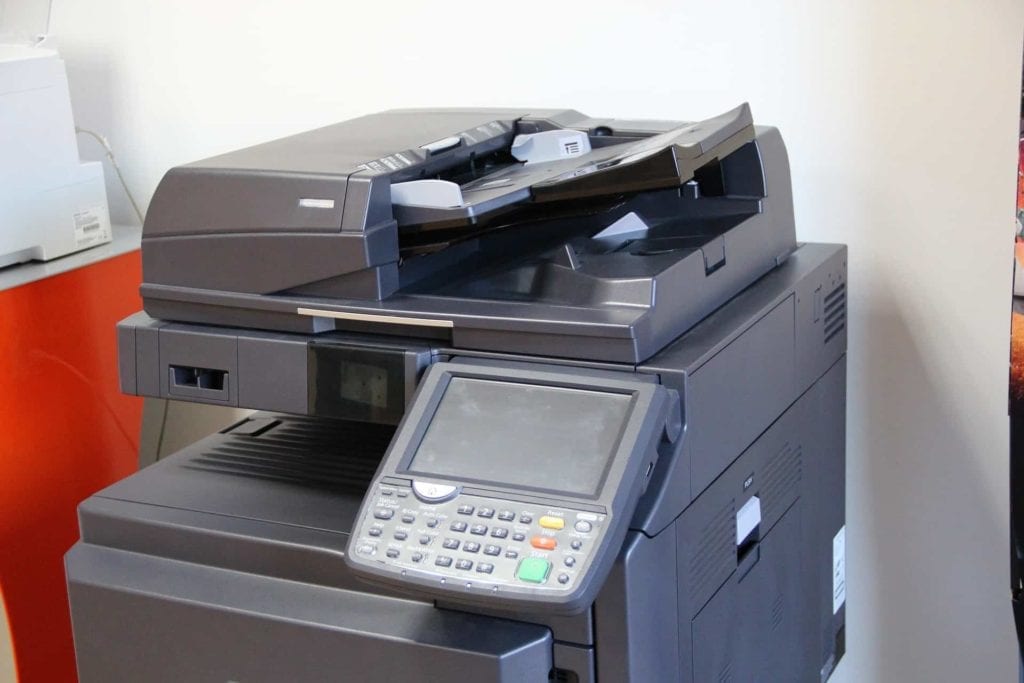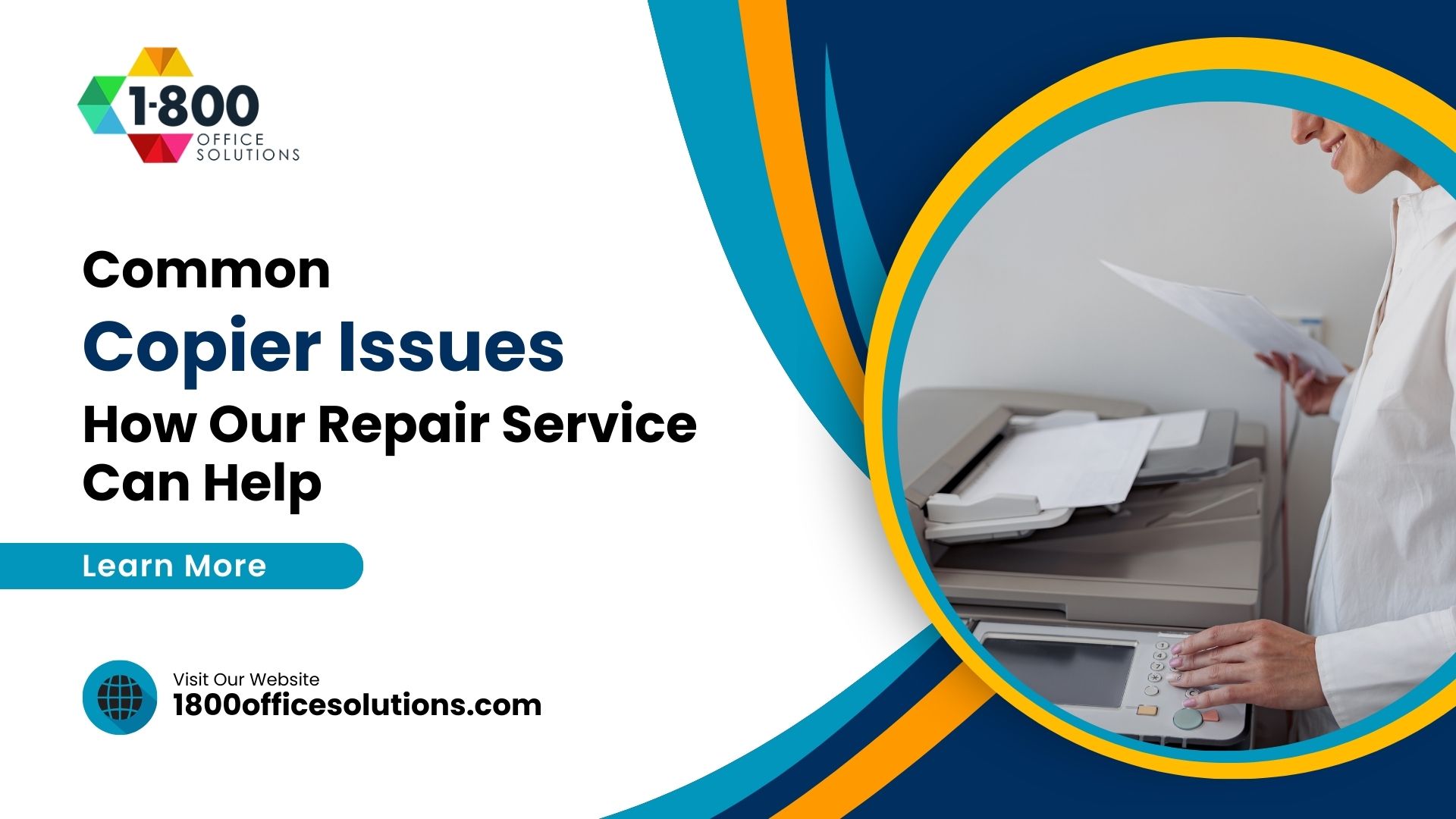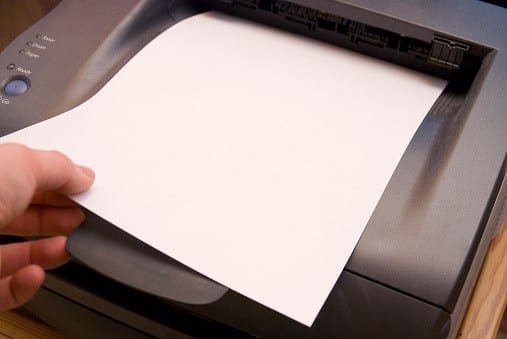Buying Copier Machine: Are These 5 Factors Overlooked by Your Small Business?
Importance of a Copier Machine for Small Businesses
Buying copier machines for small businesses, efficiency and productivity are paramount. This is especially true for small businesses, where resources are often limited and every investment counts. One such crucial investment is a copier machine.
A copier, or multifunction printer, is more than just a device for making copies. It’s a versatile piece of equipment that can print, scan, fax, and even email documents. This all-in-one functionality can significantly streamline office operations, saving time and reducing clutter. You must read all the details before buying a copier machine
Moreover, modern copiers often come with advanced features such as wireless printing, automatic document feeding, and high-quality color printing. Some even offer cloud-based services, allowing you to print or scan documents directly from your smartphone or computer.
For a small business, having a reliable copier can mean the difference between a smooth, productive day and a frustrating, inefficient one. It’s an essential tool that supports daily operations and contributes to the overall success of the business.
Common Mistakes When Buying Copier Machine
Despite the importance of copiers, many small businesses make mistakes when buying one. These mistakes can lead to unnecessary costs, poor performance, and a lot of frustration. Here are some common pitfalls to avoid:
- Overlooking Business Needs: Every business has unique needs. Some might need a high-speed Xerox machine for mass printing, while others might prefer a compact HP copier for occasional use. It’s crucial to assess your business needs before making a purchase.
- Focusing Only on Price: While it’s important to consider the upfront cost, it’s equally important to consider the total cost of ownership. This includes ongoing costs like toner replacement and maintenance. Sometimes, a cheaper machine can end up costing more in the long run.
- Ignoring the Option to Lease: Buying a copier might seem like the most straightforward option, but it’s not always the best one. Leasing a copy machine can offer more flexibility and lower upfront costs, making it a viable option for many small businesses.
- Neglecting After-Sales Service: A copier is a significant investment, and like any investment, it needs to be protected. This means choosing a vendor that offers reliable after-sales service. Without proper support, you could end up with a costly paperweight.
By avoiding these common mistakes, you can ensure that you choose the right copier for your business. Remember, a copier is more than just a machine; it’s a vital part of your business infrastructure.
Understanding the Business Needs and Evaluating Copier Features are crucial steps in the process of buying a copier machine. Make sure to consider these aspects to make an informed decision.
The 5 Overlooked Factors
Understanding the Business Needs
When it comes to choosing a copier for your business, it’s essential to start by understanding your unique business needs. This involves considering the volume of printing and copying you’ll be doing, the types of documents you’ll be handling, and the specific features that will be most useful for your operations.
For instance, a small business that only needs to print invoices and receipts may not require a high-end MFP (multifunction printer) with advanced features like high-resolution color printing or automatic document feeder. On the other hand, a design agency that regularly prints high-quality client presentations would benefit from a laser printer with superior color accuracy and print resolution.
Here are some factors to consider:
- Print Volume: How much do you plan to use the copier? The volume of printing and copying you do can guide you towards the type of copier that can handle your workload.
- Document Type: Do you primarily print text, graphics, or photos? The type of documents you print can influence the kind of copier you need.
- Features: Do you need to scan and fax documents? Do you need an automatic document feeder for scanning multiple pages at once? The features you need can narrow down your options.
Remember, the best copier for your business depends on your specific needs. Understanding the Business Needs is the first step in making an informed decision.
Evaluating Copier Features
Once you’ve identified your business needs, the next step is to evaluate the features of different copiers and printers. Modern office copiers have come a long way from being simple copying machines. They are now multifunction devices that can print, copy, scan, and even fax.
Here are some key features to consider:
- Print Speed: Measured in pages per minute, print speed is a crucial factor if you have high-volume printing needs.
- Print Quality: If you need to print detailed graphics or high-quality photos, look for a copier with a high resolution (at least 600 DPI).
- Multifunctionality: Multifunction copiers, also known as all-in-one printers, can print, copy, scan, and fax. This can be a cost-effective and space-saving solution for small businesses.
- Paper Handling: If you print on a range of paper sizes, look for a copier that can accommodate this. Some copiers also offer automatic duplexing, which can save paper.
- Connectivity: Many modern copiers offer wireless connectivity, allowing you to print from mobile devices or over a network.
Remember, the best copier is one that offers the features you need at a price that fits your budget. Evaluating Copier Features can help you find a copier that’s a best fit for your business.
Considering the Total Cost of Ownership
When buying a copier, it’s easy to focus on the upfront cost. However, the initial purchase price is just part of the equation. To truly understand the cost of a copier, you need to consider the total cost of ownership (TCO).
TCO includes all the costs associated with the copier over its lifetime, including:
- Consumables: This includes toner cartridges and other consumables. Some copiers may have cheaper upfront costs but use expensive consumables, which can cost more in the long run.
- Maintenance: Over time, your copier may need repairs or routine maintenance, which can add to the overall cost.
- Energy Use: Copiers can use a significant amount of energy, especially larger models or those that are used frequently. Energy-efficient models may cost more upfront but can save money in the long run.
By considering the TCO, you can make a more informed decision about whether to buy or lease a copier.
Assessing Vendor Reputation and Service
When you’re investing in a copier, you’re not just buying a machine — you’re also entering into a relationship with a vendor. Therefore, it’s crucial to assess the vendor’s reputation and the quality of their service.
A reputable copier vendor should offer:
- Reliable Customer Service: You should be able to reach the vendor easily if you have questions or need support.
- Quality Products: The vendor should offer high-quality products from respected copier brands.
- Transparent Pricing: The vendor should provide clear and upfront pricing, without hidden fees or complicated contracts.
Remember, a good vendor can make the process of buying or leasing a copier much smoother and more enjoyable.
Future-proofing Your Investment
Finally, it’s important to consider how your copier will meet your needs not just today, but also in the future. This is known as future-proofing your investment.
Here are some ways to future-proof your copier:
- Scalability: Choose a copier that can grow with your business. This might mean choosing a model that can handle a higher volume of printing, or one that has optional add-ons or upgrades.
- Technology Updates: Technology is always evolving, and copiers are no exception. Look for a copier that can be updated or upgraded to take advantage of new technologies.
- Leasing Options: Leasing a copier can provide more flexibility to upgrade to a newer model in the future.
By future-proofing your investment, you can ensure that your copier continues to meet your needs as your business grows and changes.
What People Also Ask
Should I Buy or Lease a Copier Machine?
The decision to buy or lease a copier machine depends on your specific business needs and financial situation. Buying a copier outright gives you ownership and eliminates monthly payments, but it also requires a significant upfront investment. On the other hand, leasing allows you to access the latest technology with a smaller upfront cost, but you'll have ongoing monthly payments for the lease term.
What Are the Common Problems with Copier Machines and Their Solutions?
Some common problems include paper jams, poor print quality, and connectivity issues.
Paper Jams: Ensure you're using the correct paper size and type for your machine, and that the paper is loaded correctly. Regular maintenance can also help prevent jams.
Poor Print Quality: This can often be resolved by replacing the toner or ink cartridge, or by cleaning the print heads.
Connectivity Issues: If your copier is having trouble connecting to your network, try resetting your router or checking the network settings on the copier.
What Are the Key Questions to Ask Before Buying a Copier?
Before purchasing a copier, it's important to ask some key questions:
1: What are my business's specific printing needs?
2: How much volume will the copier need to handle?
3: What is my budget for both upfront and ongoing costs?
4: What kind of customer service and support does the vendor offer?
5: What are the terms of the warranty or service agreement?
By asking these questions, you can ensure you choose a copier that is a good fit for your business.
How Does a Photocopier Work?
A photocopier works by using light and static electricity to transfer an image from one piece of paper (the original) to another (the copy). The process involves several steps:
1: The original document is placed on the glass plate, and the inside of the copier is charged with static electricity.
2: The copier shines a bright light onto the original document. The white areas of the document reflect the light onto a photoconductive drum inside the copier.
3: The areas of the drum that are exposed to light lose their charge. 4: This leaves an electrostatic image of the original document on the drum.
5: Toner (a type of powdered ink) is applied to the drum. The toner sticks to the charged areas of the drum, forming an image of the original document.
6: A piece of paper is then rolled over the drum. The toner is transferred from the drum to the paper, recreating the image of the original document.
The paper is heated to fuse the toner to it, creating a permanent copy of the original document.
How Much Does It Cost to Lease a Copier?
The cost to lease a copier can vary widely depending on the model, the lease term, and the inclusion of any service or maintenance agreements. On average, you might expect to pay anywhere from $100 to $600 per month to lease a copier. However, high-end models or those with advanced features like high-speed printing or color printing can cost more. It's important to get quotes from several leasing companies to ensure you're getting the best deal.
Conclusion
Recap of the Overlooked Factors
In the process of acquiring a printer or copier, many businesses often overlook crucial factors that can significantly impact their operations and bottom line. We’ve discussed five such factors:
- Understanding the Business Needs: It’s essential to assess your copying needs and determine what functionalities and features are necessary for your operations.
- Evaluating Copier Features: Different types of copiers come with varying features. It’s crucial to understand these features and how they align with your business needs.
- Considering the Total Cost of Ownership: Beyond the upfront cost of buying a printer or copier, businesses should consider ongoing costs such as maintenance, repairs, and consumables.
- Assessing Vendor Reputation and Service: The vendor’s reputation and the quality of their after-sales service can significantly impact the lifespan and efficiency of your copier.
- Future-proofing Your Investment: With the rapid advancement of technology, choosing a copier that can adapt to future needs is a wise business decision.
Final Thoughts and Recommendations
The decision to buy or lease a copier is a significant one that can impact a business’s operational efficiency and financial health. Therefore, it’s crucial to take a comprehensive approach when choosing a copier.
Remember, the best copier for your business is not necessarily the one with the most features or the lowest price. Instead, it’s the one that best aligns with your business needs, offers value for money, and comes from a reputable vendor that provides excellent after-sales service.
Whether you decide to buy the copier outright or opt for leasing, ensure that your choice is informed by a thorough understanding of your business needs, the total cost of ownership, and the potential for future growth and technological advancements.
In the ever-evolving world of business technology, a copier is more than just a machine; it’s an investment in your business’s productivity and success. Choose wisely.












